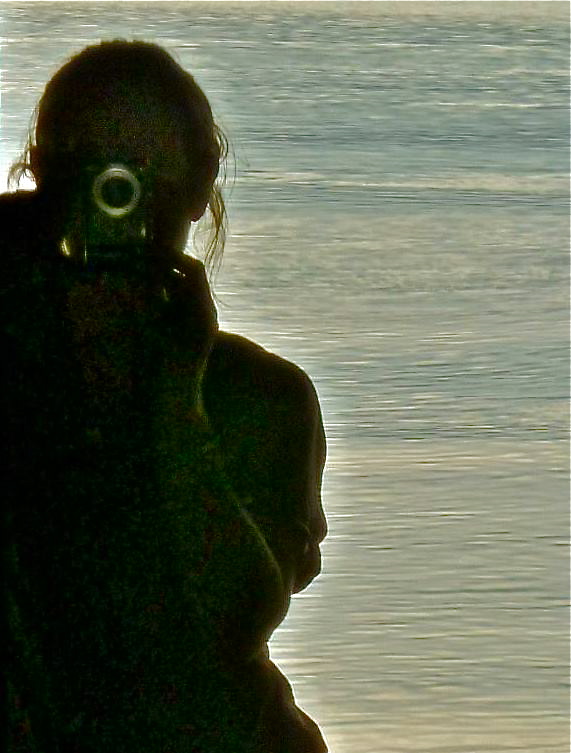Hello? It's plastic free July
It's been relatively calm of late in this frequently windy city. Until last weekend, that is. The wind blew hard from Friday onwards. (It's a good job Little Tree is so bendy.) On Saturday we decided to check out the breeze on the Bay. The locals were well hunkered down, feathers were ruffled, and a Brahminy Kite seemed aerodynamically challenged by the sharper gusts.
It was a day when newspaper pages could easily be whipped out of the hands of older readers relaxing on the Esplanade, and paper serviettes and plastic carrier bags were half way down the beach before picnickers even realised they'd lost them.
I litter-picked, and from one small curve of beach near the boat ramp I filled a small plastic bag with another bag, miscellaneous plastic bits and a large tangle of fishing line with its ensnared detritus. Is it really that difficult for fisher people to take their unwanted gear home with them? And don't get me started on the thoughtless dog walkers whose big brown bounder disturbed at least half of the 17 resting pellies in their favourite corner of Wynnum. Carrying a folded lead in your hand is not quite the same as restraining your mutt, is it? But that's the rule, stupid.
I try to minimise my use of plastic and have done for years. I keep a folding shopping bag in my handbag and two in the back of the car. I place most fruit and veg directly into my basket rather than in small plastic bags. In markets, I empty fruit and veg straight into my shopping bag and return the plastic container to the stallholders for reuse. I buy produce that is sold loose rather than bound in clingfilm on polystyrene trays.
In the build-up to plastic free July, I surveyed my shopping haunts around Brisbane to see if I could find the produce I buy regularly completely plastic free. The item that proved the most difficult was baby tomatoes. The only place I've found them – in small plastic bags rather than hard plastic containers with lids – is at a farmers' market. But I do need to buy them more frequently than the second and fourth Saturdays in the month.
Takeaways present a greater challenge. They don't have to be in plastic trays, however. Cardboard trays and paper bags work just as well for some foods, and as doggie bags. Take a reusable coffee cup along to your favourite cafe for a morning fix. They might give you a small discount, in which case you'd soon cover the cost of the cup. These are pretty smart.

And paper bags are fine for books and clothes and toys and hardware and makeup and… well… most stuff actually. Politely decline any plastic option and use your own bag.
Superfluous plastic packaging is even more evident with non-food items. Do tea bags need a tray, a foil bag and a box? And supermarkets are worse than little shops. If you buy your lunch in a metro store, the chances are your banana will have its own tray and plastic film. Online shopping has significantly added to the problem of plastic waste. We've all received extremely small items buried in a mass of polystyrene pellets in an awfully large box, haven't we?
Plastic Bag Free Queensland claim this state is the most littered on the Australian mainland. Their aim is to rid Queensland of non-compostable plastic bags. They also want reverse vending machines for collecting bottles and cans. Ban the Bag in Queensland want a complete ban on single-use bags. I think they need to get together.
You want disturbing statistics about plastic bags? I can give you some. Australians use 3.92 billion a year: that's more than 10 million new bags every day. About 3.75 billion bags (20,700 tonnes of plastic) are dumped in landfill across the continent every year: Australians dump 7,150 recyclable plastic bags into landfill every minute: that's 429,000 bags an hour. Australians are the second-biggest producers of waste per head in the world, 690 kg for each of them going to landfill a year. Here are some more gobsmackingly bad bag figures.
We all know what plastic can do to wildlife. We've seen the heartbreaking pictures of the stomach contents of seabirds that starved to death; turtles' growth retarded by six-pack rings; and even animals the size of seals strangled or suffocated by carrier bags. Animals on land and sea consume small plastic particles that have been broken down and then attracted toxic chemicals. Those animals are eaten by others higher up the food chain, and ultimately by humans. For more info, consult the Plastic Pollution Coalition.
So, every time you go shopping, to the beach, camping, bushwalking, fishing, sailing, picnicking, fun running, or whatever, think about plastic. Notice how much there is around you and around whatever you pick up. And then do something about your wasteful, throwaway world.
If you're a First Dog on the Moon fan, you may have seen this. I wasn't sure whether I wanted to laugh or cry.
This post was last edited on 16 July 2014



